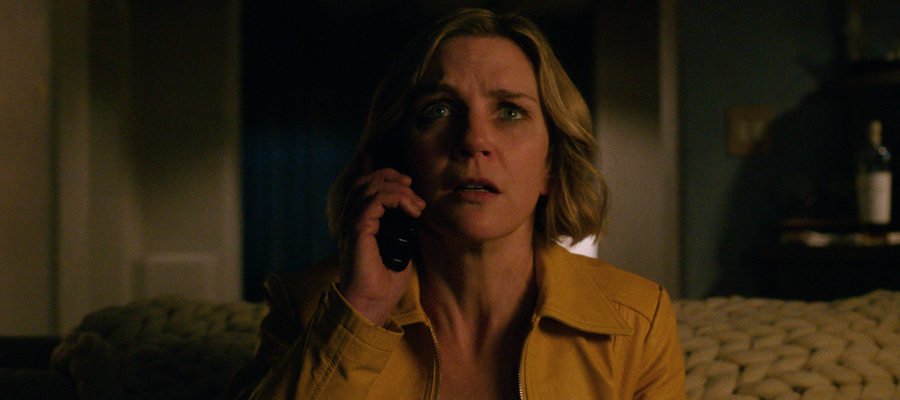Upon accepting the Writers Guild Award's top writing honour, the Paddy Chayefsky Laurel Award for Television Writing Achievement, Vince Gilligan admitted to the audience that bad guys in popular culture had become too appealing and that he'd “rather be celebrated for creating something a bit more inspiring.” After a decade of working on the Breaking Bad franchise, the premise of a protagonist turned antagonist had turned all but dramatically inert to Gilligan. In the same vein that franchise had been a reaction to the self-imposed stasis of series prior, his new series Pluribus is a reaction to the dwindling era of television characterised by complicated characters, complex plots, and hyper-serialised storytelling.
Pluribus and its deceptively simple premise – wherein one woman, Carol Sturkha (Rhea Seahorn), immune to a mysterious wave of forced happiness, must uncover what's really going on and save humanity from its own bliss – gestures further to the novelty of Gilligan ushering in the next decade of televisual storytelling. What this description forgoes, however, is that Pluribus is less concerned with the science fiction of the Albuquerque-set thriller and more with the subsequent loneliness and isolation of its main character, who is thrust into a situation that desperately seeks to strip her of her agency.
Opening on a silky-blue shot of the New Mexico night sky, the series starts with a countdown – 439D 19H 56M 11S – which, paired with Dave Porter's moody choral score, is textured as if it were lunging towards danger. With a miasma of beautiful focus shifts, symmetrical imagery and a drifting camera, Pluribus is quick to establish a post-apocalyptic tone. It successfully drags the audience into the same toxic unknown as Carol, before pulling the rug to reveal this countdown isn't so much a prophecy but an omen to the eventual recomposition of her world and worldview.
Even prior to this reveal, Carol, a romance novelist at the tail end of her book tour, is illustrated as being soured by the box she's created for herself as her wife Helen (Miriam Shor) reminds her that making “one person happy, that's something.” Seahorn's performance carefully guides the series forward as every choice thereafter is defined by numerous glances, gasps and exhausted exchanges that thoroughly communicate her prescribed misery at becoming an unwilling protagonist. Every exchange, which is ready to become a debate, is elevated by Seahorn's dense, excellent performance that delicately mixes her emotional rigidity with physical comedy, deftly exercising her individuality amongst a supporting cast best described as ‘happy strangers'.
As the series progresses, Carol is introduced to a collective of similarly complexly emotive figures from across the globe – including the plucky and hilarious Koumba Diabaté (Samba Schutte) – that only pushes her further into her own isolation. Pluribus soars as, instead of Carol being a victim of her own choices, the world consistently makes them for her. As such, her frustrations at the scale of her predicament are punished the only way Gilligan seemingly knows how – by forcing her back to Albuquerque.
Having been delayed by the 2023 Writers Guild of America strike, Gilligan's comments on the assimilation of bad guys in popular culture may also signify his strict anti-AI stance. In an interview with Polygon, he expressed his disinterest in ChatGPT as “No one has held a shotgun to my head and made me do it.” Pluribus could also be understood as Gilligan's response to an industry threatening to embrace tools that zap creativity, individuality, and agency from creatives such as himself, and Carol's isolation as a metaphor for what he may perceive as a never-ending uphill battle. In this way, Pluribus is as much the show of our times as it reflects kindly on the terror of its inspirations, and yet another hit in Apple TV's slate.
6 out of 9 episodes were available for review.
Pluribus season 1 premiered on Apple TV on November 7th, with episodes airing weekly.








